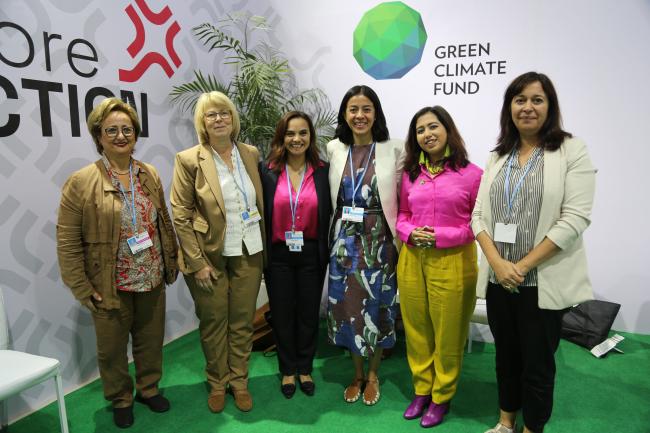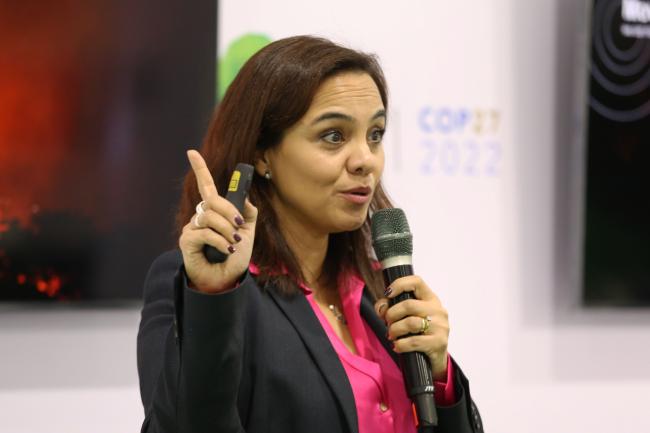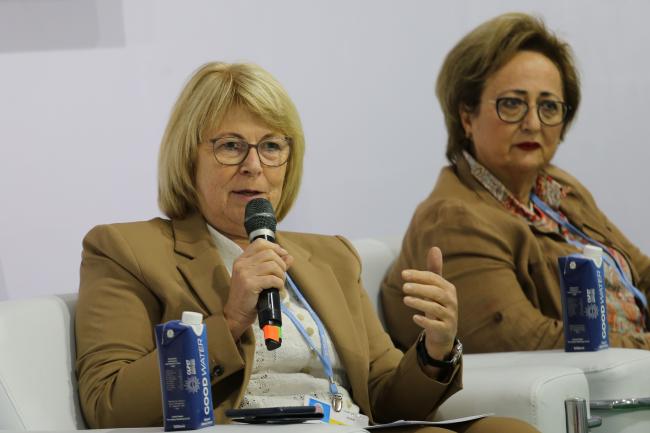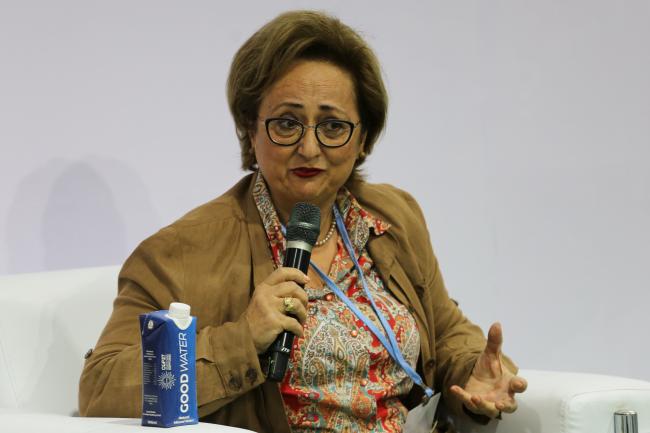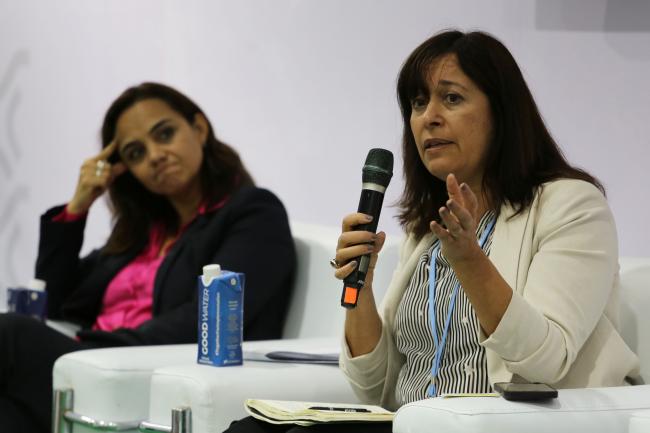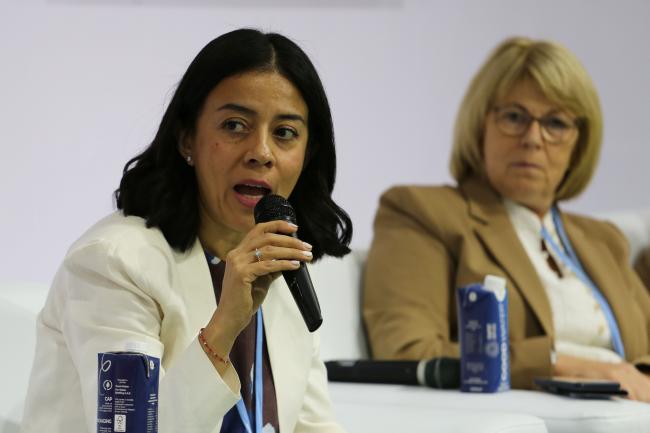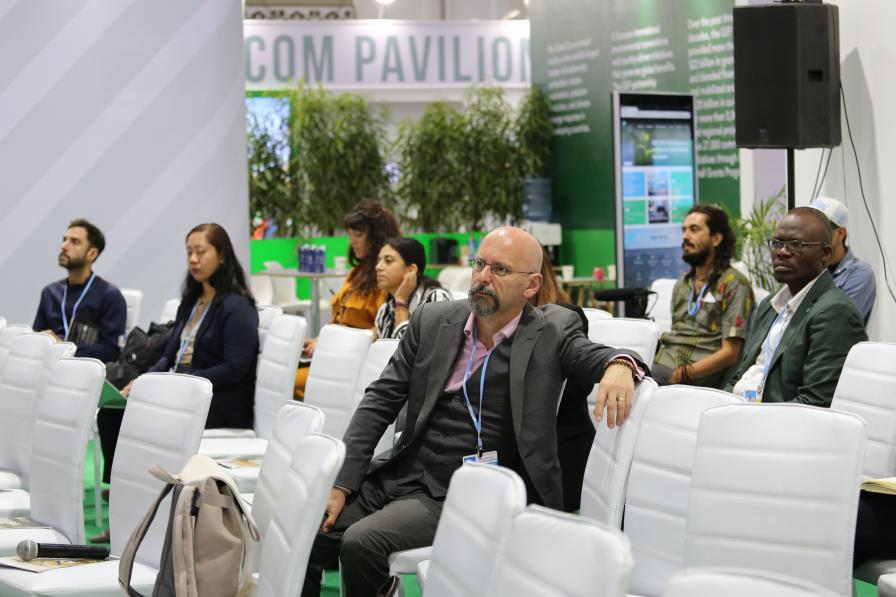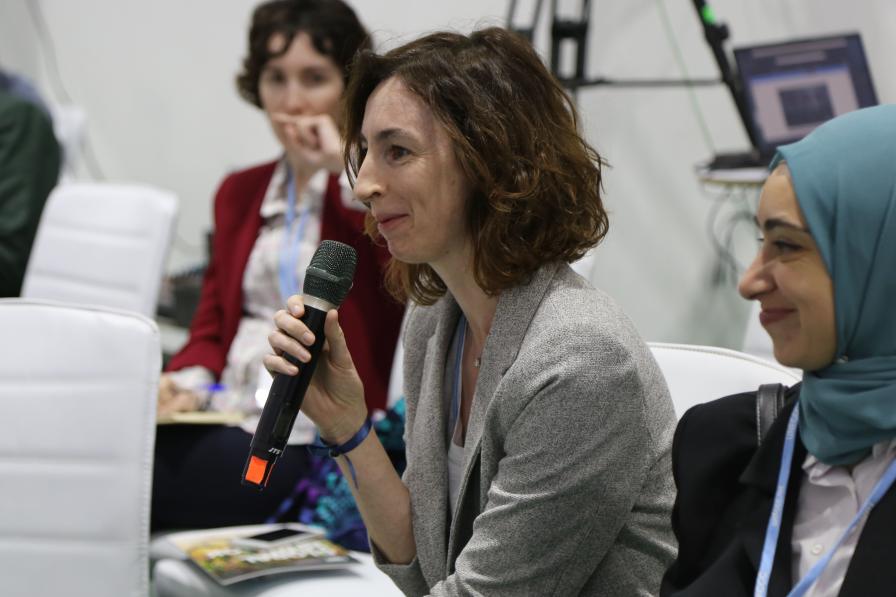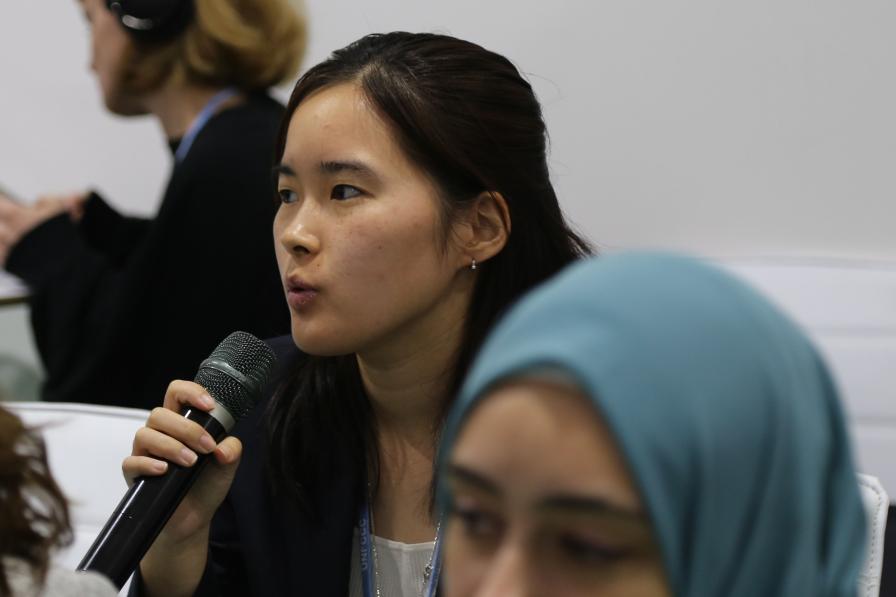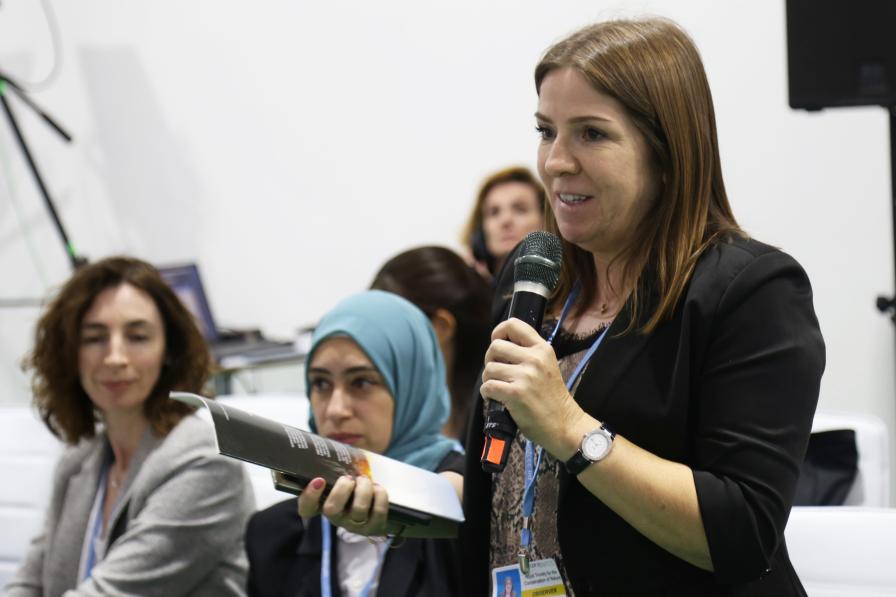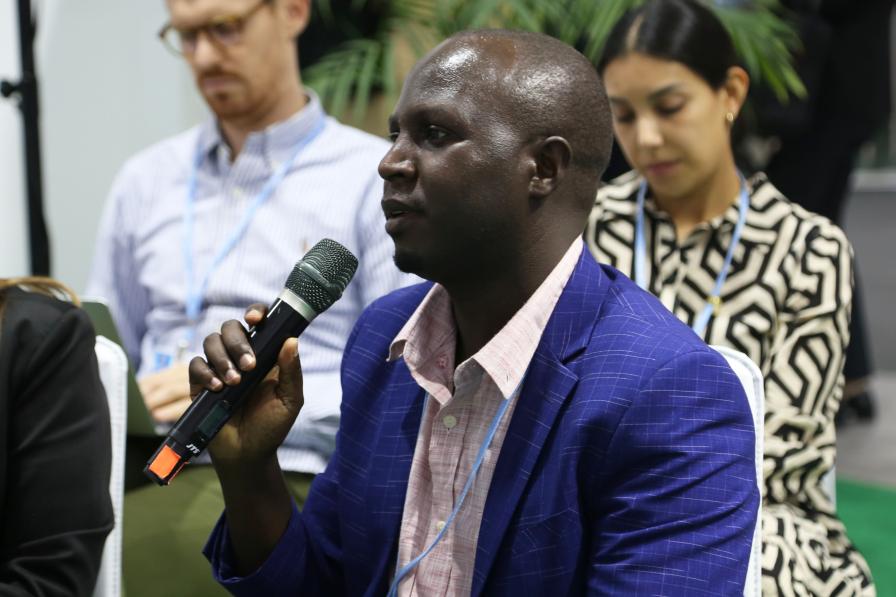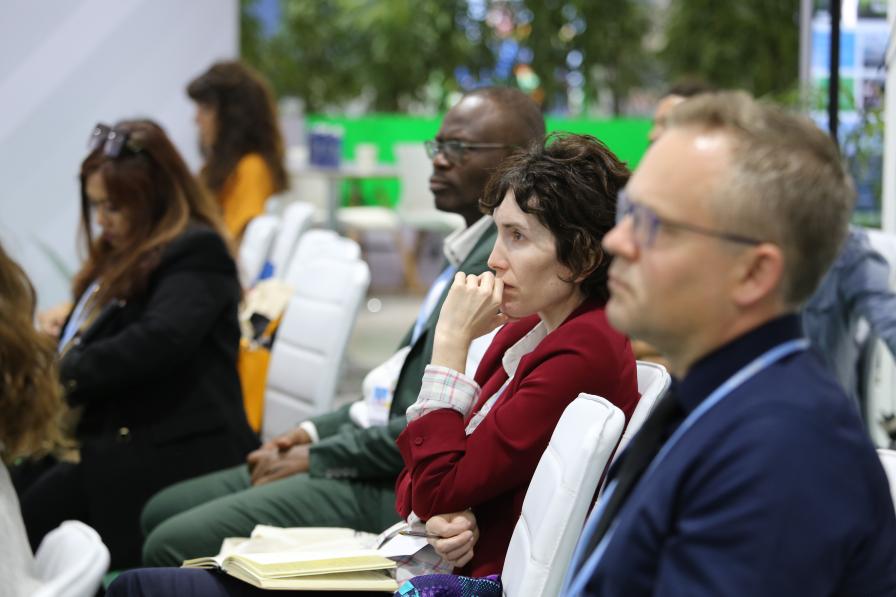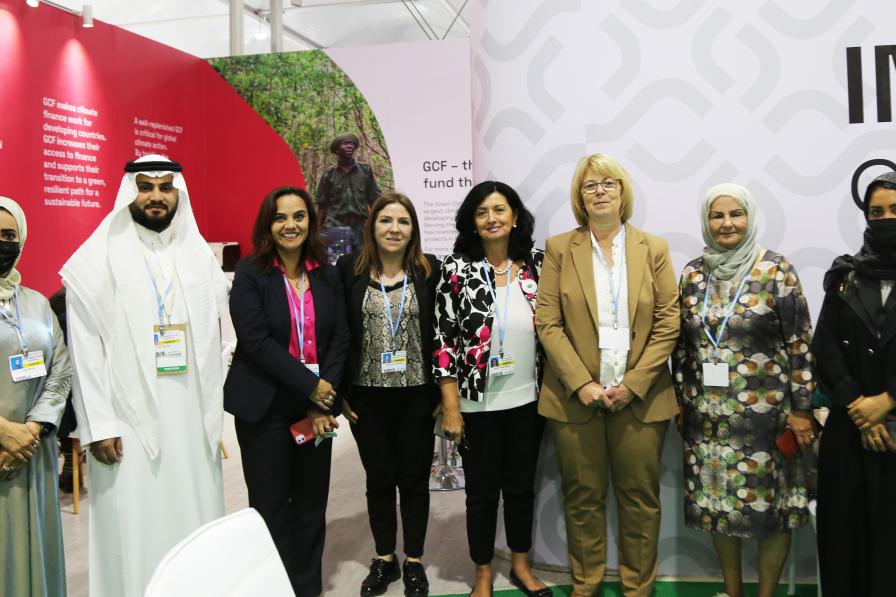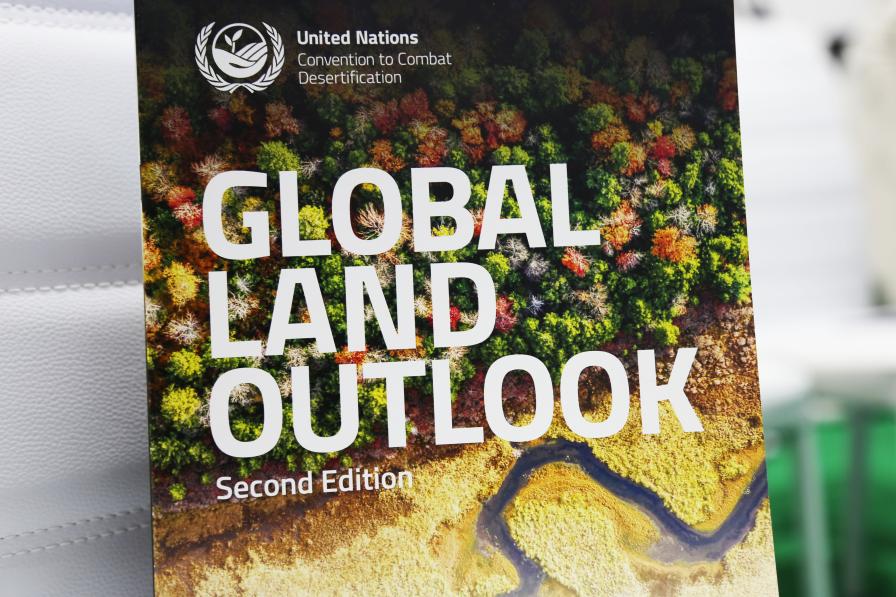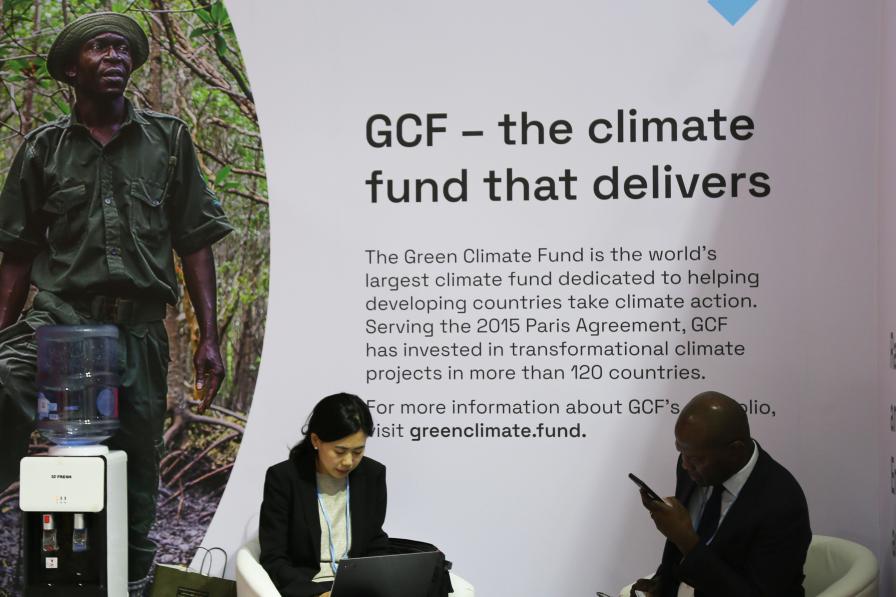Land Restoration: A nature-based solution for resilience in times of uncertainty
Land restoration plays a critical role in ensuring biodiversity conservation and addressing climate change impact. This event highlighted the coordinated efforts of different organizations in implementing land restoration projects that have resulted in the transformation of food systems, gender responsiveness for economic development, and enhanced Rio Convention synergies that align with national action plans.
Kehkashan Basu, Founder, Green Hope Foundation, moderated the event and provided welcoming remarks. She highlighted how, in a world facing multiple crises, land restoration is a solution which can be used to build resilience. She pointed out that land degradation can “create a domino effect that amplifies other inequalities.” She then prompted the speakers to discuss what projects on land restoration their organizations are implementing.
Miriam Medel, UNCCD Secretariat, discussed the 10 key messages in the organization’s flagship publication, the Global Land Outlook report. She highlighted the need for making land the focus and “putting people front and center” when land restoration solutions are developed. She also urged governments, businesses, and communities to come together because “we all have a role to play.”
Martina Fleckenstein, WWF International, discussed the work of WWF on land restoration, highlighting women’s involvement in these projects, particularly on deforestation projects. She also welcomed the news that discussions around food made it into the COP 27 agenda because land restoration is integral to addressing biodiversity loss and food security. “The journey has not ended. It is us who need to work on this restoration system,” she emphasized.
Dunia Khoury, Women’s Earth and Climate Action Network, discussed her organization’s initiatives for women in Lebanon where they implemented several projects: working with municipalities to create rural development centers for women and creating green spaces; keeping agricultural traditions of the community alive; and capacity building and vocational training for women. She highlighted the importance of gender inclusivity in the development of land restoration solutions.
Jessica Troni, UNEP, discussed UNEP’s work at both the country level and the global level, highlighting, in particular, the challenges of project implementation on a country level. She stressed that “it is difficult to scale up at a country level” because the capacity and the policies to promote land restoration is “simply not there.” She cited the examples of UNEP’s work in Gambia and Fiji where the lack of financial literacy and lack of subsidies for minimum tillage equipment present a challenge for implementing long-term projects. She pointed out the need to raise awareness of the issue, lobby for policy change, and “break down silos between ministries to get them to cooperate with each other.” She added that what is needed to make these happen is “political will to drive policy change, capacity involvement, and engaging all stakeholders.”
Carolina Fuentes, GCF, discussed the GCF’s work on ecosystems and ecosystem services, which she believes are both critical for land restoration. She emphasized that land restoration is “not confined to the civil sector but is interlinked” with forest, land use, agriculture and food security issues. She also discussed how the GCF ensures its projects are country-driven and that public consultation and participation, which includes women, Indigenous groups and all stakeholders, are conducted properly. She said that in order to ensure land restoration is acted upon, there is a need to ensure financial flows are made available and are able to “meet the scale of the challenge” of land restoration solutions, which include both mitigation and adaptation strategies. Indeed, she pointed out that “no single climate finance can address all our needs.”
Offering concluding remarks, Basu emphasized the importance of land restoration in building resiliency, particularly during a time when multiple crises are converging, resulting in biodiversity loss, food insecurity, and climate change issues.
Organizer: Rio Conventions Pavilion, in collaboration with the Global Environment Facility
Contact: David Ainsworth | david.ainsworth@un.org
For more information: http://www.riopavilion.org/
To receive free coverage of global environmental events delivered to your inbox, subscribe to the ENB Update newsletter.
